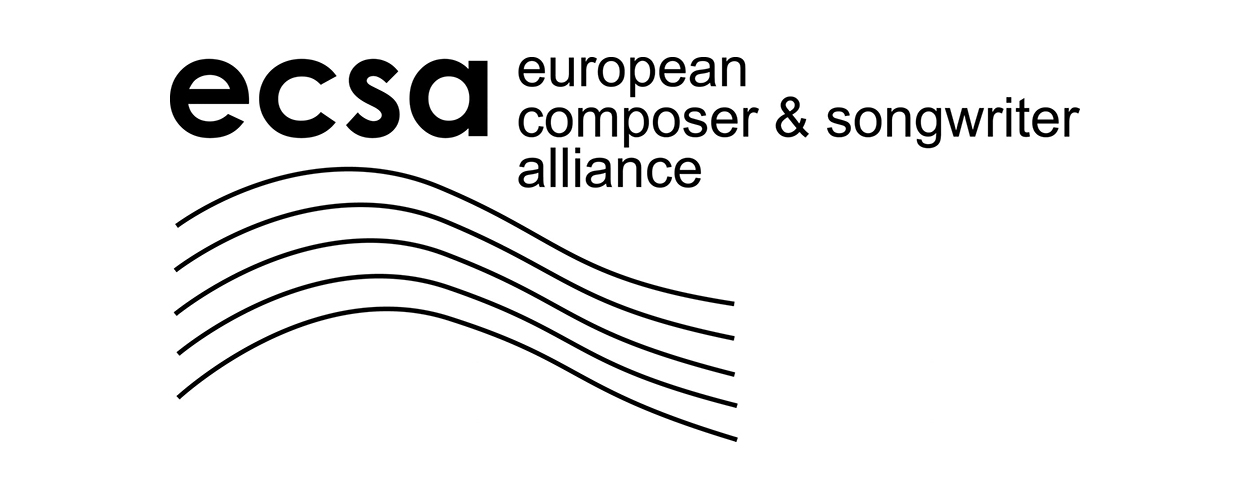This website uses cookies so that we can provide you with the best user experience possible. Cookie information is stored in your browser and performs functions such as recognising you when you return to our website and helping our team to understand which sections of the website you find most interesting and useful.
Business News Digital Labels & Publishers
ECSA makes recommendations for streaming reform ahead of discussion in European Parliament next week
By Chris Cooke | Published on Thursday 13 July 2023

The European Composer & Songwriter Alliance has published a new report called ‘Music Streaming And Its Impact On Music Authors’. It sets out six recommendations for addressing the concerns expressed about the digital music business by those who compose and write the music that everyone is streaming.
The ECSA document has been published ahead of a meeting of the European Parliament’s culture and education committee next week which will discuss a draft report produced by MEP Ibán García Del Blanco that is focused on “cultural diversity and the conditions for authors in the European Music streaming market”.
Introducing the new report from ECSA, the organisation’s President, songwriter Helienne Lindvall, says: “Despite the apparent success of the music streaming market, the composers and songwriters – who are the engines of the entire music industry – struggle to make a living from their craft, with less than €1 out of a €9.99 subscription going to them”.
“With this report”, she adds, “we want to provide a vital call to action, with six major recommendations to fix streaming and ensure long-term sustainability for music creators”.
The first of those recommendations puts the spotlight on the debate around how streaming income is shared out between all the different stakeholders in the digital music business, including the streaming services, record labels, music publishers, artists and, of course, songwriters.
Music streaming is generally a revenue share business, with approximately 50-55% of revenue flowing to the recording rights, and 10-15% to the song rights.
Songwriters have long called for a re-slicing of the digital pie so that more money flows to the songs side. In its report, ESCA calls for the industry to “share the streaming pie in a more sustainable manner and value the fundamental role played by music authors in the streaming market”.
Beyond what slice of the money is allocated to the song rights, there are also data issues that affect how songwriters get paid, which increase the costs of processing royalties, delay payments getting through, and sometimes stop writers getting paid at all. The same data issues also mean songwriters are not always credited within the streaming services.
To that end, ECSA’s second recommendation is that the industry “ensure better identification of creators on streaming services”.
Elsewhere in the report, ECSA stresses the need for streaming subscription prices to keep up with inflation; backs calls from across the music community for a review of how streaming revenues are allocated to individual tracks each month; demands more transparency around streaming service algorithms and playlisting operations; and notes the importance of ensuring the “prominence and discoverability” of European music via the streaming services.
With the streaming business very much on the agenda in the European Parliament, the ECSA report also sets out how European Union lawmakers could help bring about some of the changes that are proposed. Noting the political dimension, Lindvall continues: “We take this opportunity to thank and congratulate MEP Ibán García del Blanco for his draft report on music streaming”.
“As highlighted in both reports”, she goes on, “it’s crucial to address the current revenue imbalance in the music streaming market and create a fair and transparent ecosystem that promotes cultural diversity. Moreover, improving creators’ identification, ensuring the prominence and discoverability of European works on music streaming platforms, and enhancing transparency of algorithms and content recommendation systems are crucial steps to fix streaming”.
She then concludes: “We urge all MEPs to support this important initiative and we look forward to working collectively towards a sustainable future for the music industry”.
You can download the report – which was compiled with input from CMU’s consultancy unit CMU Insights – via the ECSA website here.





